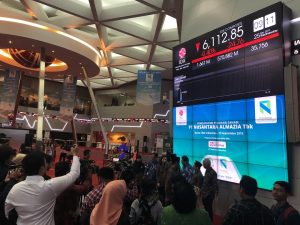The Impact of Economic Factors on Forex Trading in India
Forex trading, also known as foreign exchange trading, has become increasingly popular in India in recent years. With advancements in technology and the ease of access to global markets, more and more Indians are venturing into this lucrative market. However, like any other form of trading, forex trading is influenced by a wide range of factors, especially economic factors. In this article, we will explore the impact of economic factors on forex trading in India.
1. Interest Rates: One of the most significant economic factors that affect forex trading is interest rates. Central banks, such as the Reserve Bank of India (RBI), have the power to change interest rates, which in turn can have a substantial impact on the currency value. When interest rates are increased, it attracts foreign investors looking for higher returns, leading to an increase in the demand for the currency. As a result, the value of the currency appreciates. Conversely, when interest rates are lowered, it reduces the attractiveness of the currency, leading to a decrease in its value.
2. Inflation: Inflation is another crucial economic factor that influences forex trading. When a country experiences high inflation, it erodes the purchasing power of its currency. As a result, the currency’s value decreases, making it less desirable for forex traders. On the other hand, if a country has low inflation, it enhances the purchasing power and attractiveness of its currency, leading to an increase in its value. Forex traders closely monitor inflation rates to make informed trading decisions.
3. GDP Growth: Gross Domestic Product (GDP) growth is a key indicator of a country’s economic health and can significantly impact forex trading. When a country’s GDP is growing at a robust pace, it indicates a strong economy, attracting foreign investors. As a result, the demand for the country’s currency increases, leading to an appreciation in its value. Conversely, if a country’s GDP growth is sluggish or negative, it signifies a weak economy, causing a decrease in the demand for its currency and a depreciation in its value.
4. Trade Balance: The trade balance, which is the difference between a country’s exports and imports, also plays a vital role in forex trading. A positive trade balance, also known as a trade surplus, occurs when a country’s exports exceed its imports. This signals a healthy economy and increases the demand for its currency. On the other hand, a negative trade balance, or a trade deficit, occurs when a country’s imports surpass its exports. This indicates a weak economy and can lead to a depreciation in the currency’s value.
5. Political Stability: Political stability or instability can have a significant impact on forex trading. Political turmoil, such as elections, changes in government, or geopolitical tensions, can create uncertainty in the market. Forex traders tend to avoid currencies of countries experiencing political instability as it can lead to volatility and unpredictable price movements. On the other hand, countries with stable political environments are more attractive to forex traders.
In conclusion, economic factors have a profound impact on forex trading in India. Interest rates, inflation, GDP growth, trade balance, and political stability all play a crucial role in determining the value of a country’s currency. Forex traders closely monitor these factors to make informed trading decisions and capitalize on potential opportunities. It is essential for traders to stay updated on economic news and data releases that can influence the forex market. By understanding and analyzing these economic factors, forex traders in India can improve their chances of success in this dynamic and ever-changing market.






